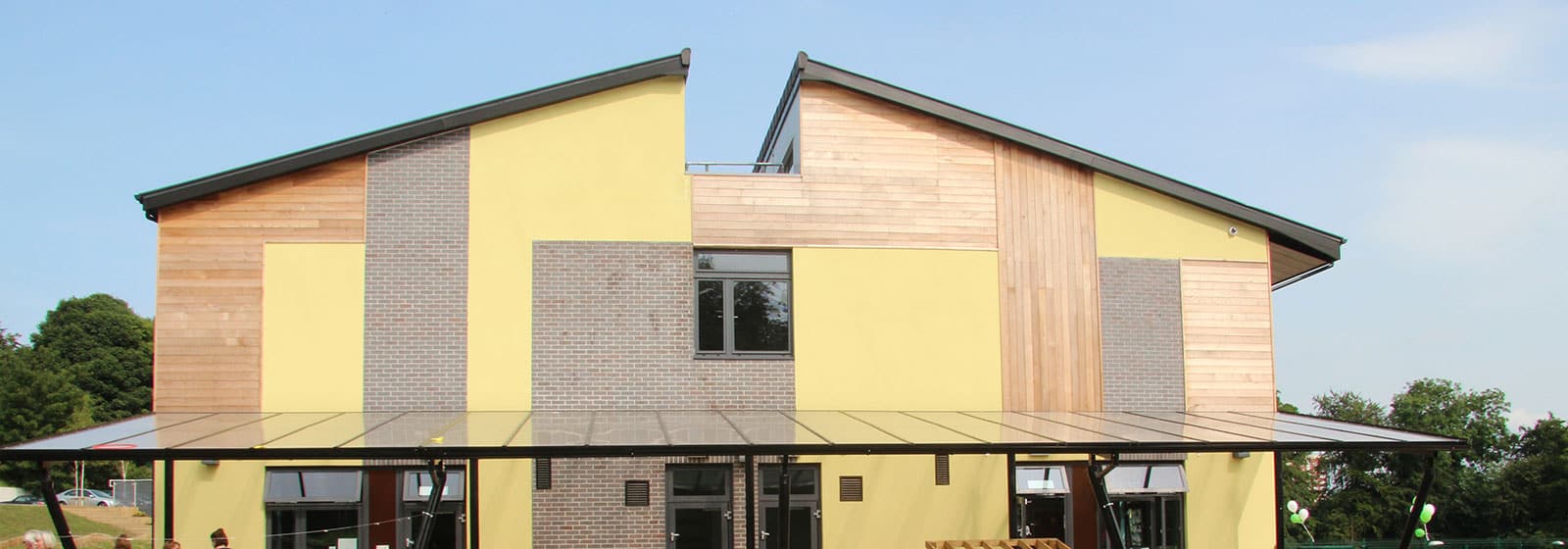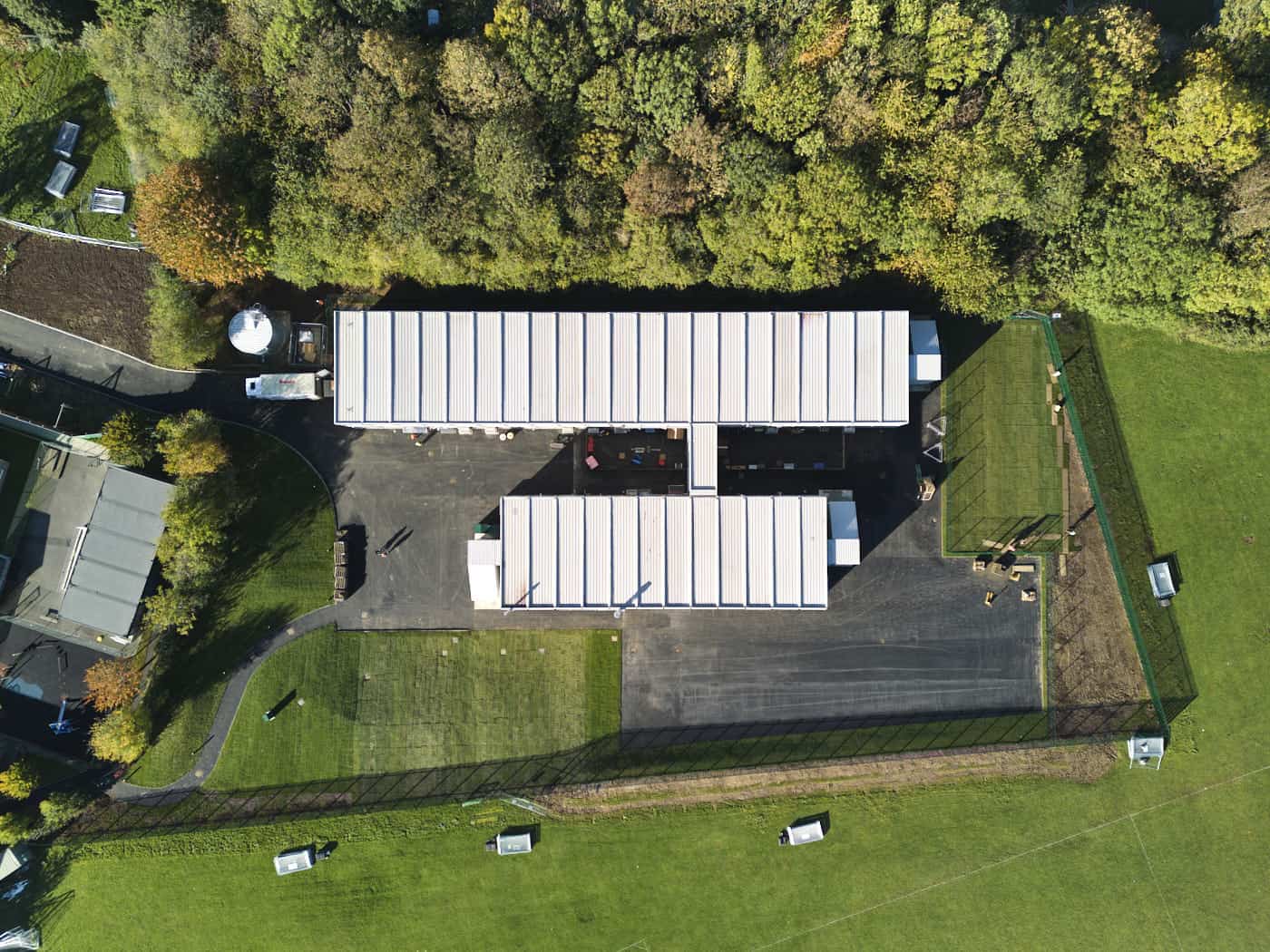Premier was the first offsite specialist in the UK and in Europe to engineer a solution which allows a feature mono-pitch roof to be manufactured in the factory and craned into position in just a few hours.

Premier Modular is believed to be the first offsite specialist in the UK and in Europe to engineer a solution which allows a feature mono-pitch roof to be manufactured in the factory and craned into position in just a few hours.
This is a significant innovation which pushes the boundaries of modular technology by extending offsite fabrication to roof construction and is proven, having already been used for six projects in sectors as diverse as retail and education.
Premier’s solution adds a completely new architectural dimension to modular construction, allowing the creation of a distinctive angled roof externally and a dramatic vaulted ceiling internally up to 7m high.
The interior of a building can be flooded with light with the addition of roof glazing or a north light, creating an open, attractive internal space that has multiple applications – from restaurants to classrooms and offices.
For further design flexibility, the vaulted ceiling can be finished in plasterboard and timber joists can be specified – or the steel structure can be exposed for a more functional appearance.
Previously, if an architect or client specifies a mono-pitch roof for a modular building, this element has had to be added using in-situ construction methods because of the height restrictions of transporting a module with a roof to site. An assembled roof structure will usually have a 6m pitch which with a module, makes it too high for road transport.
Constructing a roof on site using traditional methods increases the number of trades, the cost of prelims (scaffolding and edge protection), adds to the programme time by at least two weeks and involves work at height with all the associated health and safety implications.
With the use of Premier’s hinged roofing system, the process of constructing the roof on site is reduced from around two weeks to just a few hours with all the benefits of offsite construction – enhanced quality and precision, improved health and safety on site, earlier occupation, faster return on investment and simplified procurement.
Premier’s roofing solution offers a number of design options for further flexibility:
- There is no fixed ceiling height. The angled roof can be at different heights up to 7m
- The roof can be finished in tiles or slate to meet planning requirements or to complement an existing building
- Internally, the vaulted ceiling can have an exposed steel structure, timber roof trusses and/or a plasterboard finish
- It can be used for the upper floor of a multi-storey building or for a single storey building
- Glazing such as a north light, large picture window or roof lights can be added to increase natural light and ventilation.
Applications in Diverse Sectors
The offsite roofing system has been used for a number of education schemes to date, including:
- A teaching block at Windygoul Primary School. A north light was added to the high end of the roof to maximise natural light
- A two-storey building at Roundhay School provides additional teaching space. Two angled roofs create vaulted ceilings for the classrooms either side of a central corridor. Large picture windows at the high end of the ceilings increase natural light and further enhance the teaching environment.
In the retail sector, the system has been used by the developer of three drive-thru outlets for Starbucks franchisees – Hartlepool, Hull and Fleet. Premier had the challenge of building these stores offsite whilst precisely reflecting Starbucks’ stringent brand requirements and cost effectively. Developed for traditional construction, the store design features a striking angled roof.
Each store built by Premier using this solution has a 6.5m high vaulted roof finished in dark grey to contrast with exposed timber roof trusses, providing a welcoming and warm interior.
Following the success of the product on these projects, Premier is now looking to expand its use, particularly in education. It also has potential for commercial offices and residential schemes such as care homes.











